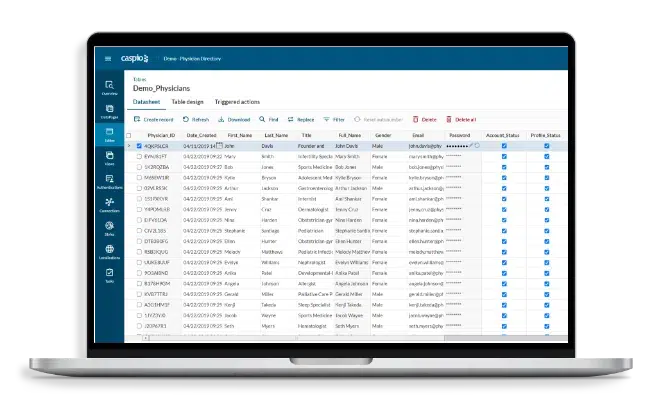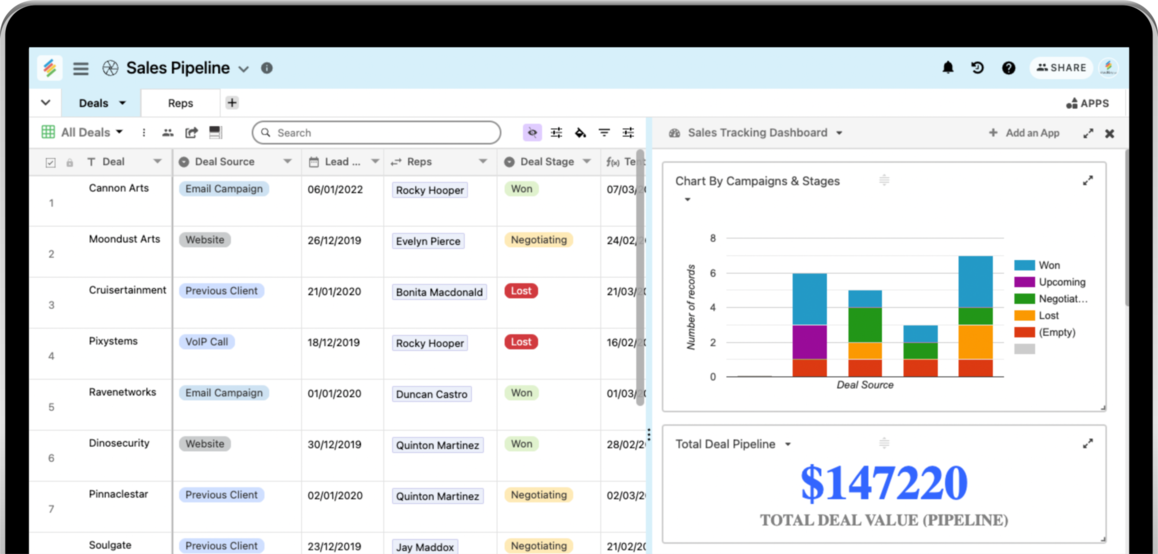Discovering the Benefits of Scalable Databases That Call For No Coding Skills for Efficient Data Monitoring Solutions
The emergence of scalable databases that remove the necessity for coding abilities offers a transformative chance for organizations seeking efficient information administration remedies. As we consider the ramifications of such advancements, it becomes important to analyze just how they can reshape the landscape of information administration and drive sustainable growth in a competitive environment.
Enhanced Availability for Customers
Enhanced accessibility for customers is a critical element of scalable data sources, making certain that data monitoring systems are intuitive and easy to use. In an era where data-driven choices are critical, ease of access allows a wider series of individuals, consisting of those without comprehensive technological expertise, to engage with database systems effectively. This democratization of information gain access to helps with improved collaboration throughout departments, empowering employees to extract insights and make notified decisions.
Easy to use user interfaces, such as drag-and-drop attributes and aesthetic data representation, simplify intricate information interactions. These improvements minimize the learning curve related to standard data source management, enabling users to concentrate on leveraging information as opposed to facing technological intricacies. Scalable data sources usually integrate customizable control panels and real-time analytics, providing customers with prompt understandings tailored to their details demands.

Cost-Effectiveness and Resource Financial Savings
Efficient data management not just rests on accessibility but also on cost-effectiveness and source financial savings. Scalable data sources designed for customers with no coding abilities significantly reduce monetary problems typically connected with standard database monitoring systems. By removing the requirement for specialized shows expertise, companies can designate their resources a lot more efficiently, concentrating funds on core organization tasks as opposed to considerable training or employing experienced employees.
Furthermore, these data sources often use cloud-based solutions, which additionally decrease prices associated with hardware and maintenance. Organizations can scale their database remedies according to their demands, preventing the expenses sustained from over-provisioning resources. This flexibility implies organizations can adapt to changing needs without incurring unneeded prices, causing significant long-lasting cost savings.
Furthermore, straightforward user interfaces enhance data access and administration procedures, reducing the moment invested in management tasks. This effectiveness equates into labor expense financial savings, permitting groups to concentrate on strategic efforts rather than regular maintenance. On the whole, adopting scalable databases that call for no coding abilities fosters an extra economical method to information monitoring, making it possible for organizations to optimize their sources while preserving high degrees of functional efficiency.
Improved Partnership Across Teams

Moreover, scalable databases assist in smooth interaction among group participants. With user-friendly user interfaces that need no coding abilities, employees can easily create, change, and share records or dashboards tailored to their certain demands. This democratization of data empowers non-technical individuals to contribute insights, improving the collaborative setting.
Furthermore, these data sources sustain simultaneous gain access to, allowing several customers to deal with the very same dataset at the same time. This feature improves performance, as groups can take part in joint data evaluation without the risk of variation control problems. The capability to leave remarks or notes straight within the database better promotes dialogue and clears up data analyses.
Streamlined Information Administration Processes
In today's data-driven atmosphere, companies identify the need of streamlined information monitoring refines to maximize effectiveness and accuracy. By leveraging scalable databases that need no coding abilities, services can simplify their information handling and minimize the complexities usually related to traditional database systems. This ease of access empowers non-technical users to engage directly with data, promoting quicker decision-making and decreasing reliance on specialized IT workers.
Structured data management processes improve process by automating regular tasks such as data entry, recognition, and coverage. Automated data combination makes certain that information from various resources is accumulated flawlessly, getting rid of silos and cultivating an unified view of crucial business metrics (no-code). Moreover, straightforward user interfaces enable personnel to adjust information easily, allowing them to generate understandings that drive calculated efforts without the demand for extensive training.
This effectiveness not just accelerates functional procedures however additionally lessens the potential for human error, guaranteeing that data continues to be reliable and exact. Eventually, streamlined information monitoring processes with scalable data sources bring about boosted efficiency, permitting companies to concentrate on core activities while guaranteeing that their data administration methods are effective and efficient.
Scalability for Expanding Businesses

For expanding enterprises, the ability to scale up or down is critical. A scalable database can take care of an increase of data generated from new customers, items, or services, guaranteeing that organization operations remain nonstop. These data sources give the capacity to handle peak tons successfully, which is crucial throughout periods of quick growth or seasonal spikes.
In addition, many scalable database solutions are created with straightforward user interfaces that call for no coding skills, encouraging non-technical personnel to take care of information properly (no-code). This democratization of data monitoring enables companies to assign resources tactically and lower reliance on specialized IT personnel
Ultimately, embracing a scalable data source not only enhances functional performance however likewise cultivates a setting where services can advance and introduce without the restrictions of conventional data source systems. This flexibility settings companies for long-term success in today's affordable landscape.
Verdict
In conclusion, scalable databases that require no coding abilities give significant benefits for reliable information management. By blog improving information management processes and offering scalability for expanding companies, such services enable organizations to adjust to altering needs successfully.
Boosted accessibility for customers is a crucial element of scalable databases, making certain that data administration systems are straightforward and instinctive.Straightforward user interfaces, such as aesthetic data and drag-and-drop functions depiction, simplify complicated information interactions. Generally, taking on scalable data sources that call for no coding skills promotes a more economical method to information administration, enabling companies to optimize their resources while preserving high levels website link of functional performance.
By leveraging scalable data sources that need no coding abilities, organizations can simplify their data handling and minimize the intricacies generally associated with traditional database systems - no-code.Streamlined data administration procedures boost operations by automating routine tasks such as data access, validation, and coverage
Comments on “No-Code Open System Database Creation: Encouraging Businesses to Construct Faster”